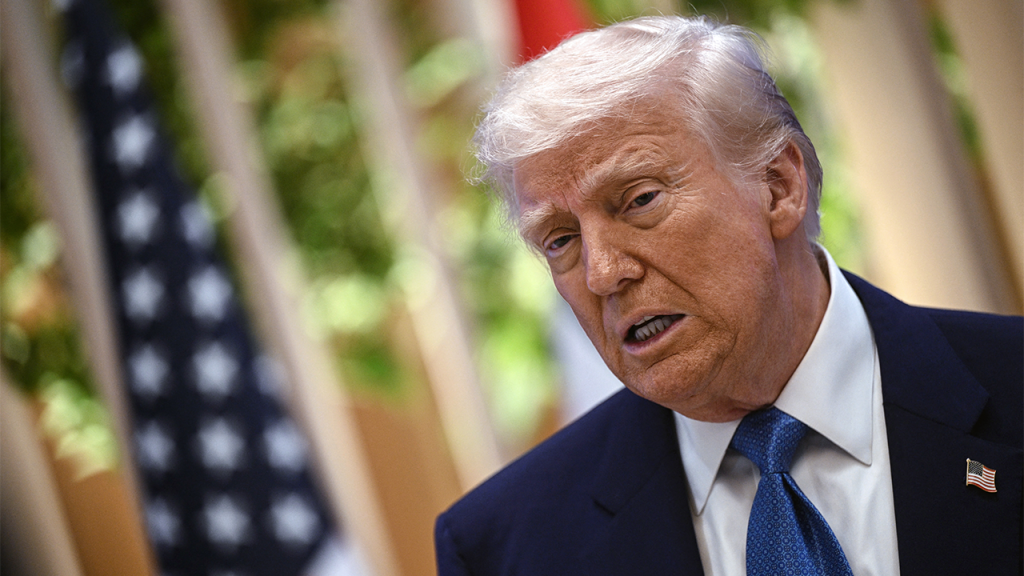On Friday, President Donald Trump expressed his desire to meet with Russian President Vladimir Putin to discuss the ongoing war in Ukraine. Speaking from Abu Dhabi during his Middle East tour, Trump emphasized the urgency of the meeting, stating that it is “time for us to just do it.” Amid peace talk challenges, observers note the complexities of current negotiations between Ukraine and Russia, especially following President Putin’s rejection of a face-to-face meeting with Ukrainian President Volodymyr Zelenskyy.
| Article Subheadings |
|---|
| 1) Trump’s Call for Direct Dialogue |
| 2) Latest Developments in Peace Talks |
| 3) Analysis of the Current Negotiation Landscape |
| 4) Reactions from Key Political Figures |
| 5) Future Implications of Ongoing Talks |
Trump’s Call for Direct Dialogue
During a press briefing in Abu Dhabi, President Trump indicated that he aims to initiate a conversation with President Putin regarding Ukraine’s ongoing conflict. He suggested that this meeting should happen “as soon as we can set it up,” indicating a sense of immediate urgency in addressing the war’s complications. This call for dialogue reflects Trump’s belief that direct negotiations could play a key role in breaking the diplomatic deadlock.
Earlier statements made by Trump highlighted his view that his participation is crucial for any meaningful negotiations. He noted, “If I don’t go, I guarantee Putin’s not going,” underscoring his perception of his influence in the negotiation process. This perspective presents a complex dynamic in which Trump believes his involvement might sway Putin to participate in discussions aimed at conflict resolution.
Latest Developments in Peace Talks
As the conflict continues, recent developments reveal a cautious approach from both sides regarding peace negotiations. Ukrainian President Zelenskyy had extended an invitation to Putin for talks in Istanbul, which the Russian president declined. Instead, a low-level Russian delegation, led by presidential aide Vladimir Medinsky, is expected to meet with a Ukrainian team headed by Defense Minister Rustem Umerov.
Zelenskyy has criticized Russia for sending a less prominent negotiating team, referring to them as merely “a theater prop.” The shifting dynamics indicate a lack of seriousness from Russia, according to Zelenskyy, who emphasizes Ukraine’s commitment to pursuing peace despite the apparent unwillingness from the Russian side to engage at a high level.
Analysis of the Current Negotiation Landscape
Analysts observing the ongoing negotiations express concerns regarding the likelihood of substantial progress. The significant gap between Ukrainian and Russian conditions for ending the war has raised doubts about the potential outcome of the upcoming talks. Ukraine is advocating for a thorough 30-day ceasefire, which Russia has substantially rejected by imposing additional, demanding conditions.
Recent military intelligence reports suggest that Russian forces may be preparing for a renewed offensive, further complicating the peace process. With both sides far apart on key issues, the prevailing sentiment among experts is pessimistic regarding immediate resolution efforts. Secretary of State Marco Rubio, speaking after informal NATO meetings, clarified that he does not anticipate any major breakthroughs arising from the discussions.
Reactions from Key Political Figures
The international political community has been closely monitoring the negotiations. Following Turkey’s hosting of preliminary meetings between Ukraine and U.S. officials, Rubio stated, “We don’t have high expectations of what will happen tomorrow.” This candid assessment reflects a broader skepticism regarding the efficacy of negotiations in the current context.
Zelenskyy’s response to Russia’s low-level delegation underscores a deep frustration within the Ukrainian leadership. Despite this, he remains steadfast in his commitment to peace talks, indicating a complex calculation where Ukraine seeks to present itself as a constructive participant amid an apparent imbalance in negotiation seriousness.
Future Implications of Ongoing Talks
Looking forward, the future of peace negotiations remains uncertain. With Secretary Rubio highlighting that real advances are likely only to occur through Trump and Putin, diplomatic observers are left contemplating alternate routes for resolving the conflict. Any breakthrough will require not only shifts in negotiation tactics but also a reevaluation of underlying geopolitical strategies.
As ongoing discussions unfold, the importance of international diplomatic intervention cannot be overstated. The global implications of this conflict, marked by humanitarian crises and geopolitical tensions, necessitate a robust and coordinated response from the broader international community.
| No. | Key Points |
|---|---|
| 1 | Trump seeks a meeting with Putin to discuss the Ukraine war, emphasizing urgency. |
| 2 | Putin declined Zelenskyy’s invitation for peace talks, sending a low-level delegation instead. |
| 3 | Analysts express skepticism regarding the potential for significant progress in negotiations. |
| 4 | Ukraine remains committed to peace talks despite Russia’s less serious approach. |
| 5 | Future negotiations may depend heavily on the involvement of key global leaders. |
Summary
In conclusion, President Trump’s initiative to meet with President Putin emerges as a crucial element in the quest for peace in Ukraine. With longstanding tensions and recent refusals for high-level dialogue, the path forward remains fraught with challenges. The ongoing political maneuvers, including the roles of Zelenskyy and Rubio, showcase the intricate layers of diplomacy that will determine the future of this protracted conflict.
Frequently Asked Questions
Question: Why did Trump emphasize the need for a meeting with Putin?
Trump believes that direct discussions are essential for breaking the deadlock in negotiations related to the Ukraine conflict.
Question: What was Zelenskyy’s reaction to Russia’s negotiating team?
Zelenskyy criticized Russia for sending a low-level delegation, suggesting it demonstrated a lack of seriousness in pursuing peace talks.
Question: What are the current expectations for the peace talks?
Political analysts express little optimism, believing that there will be no significant breakthroughs without direct involvement from key leaders like Trump and Putin.
